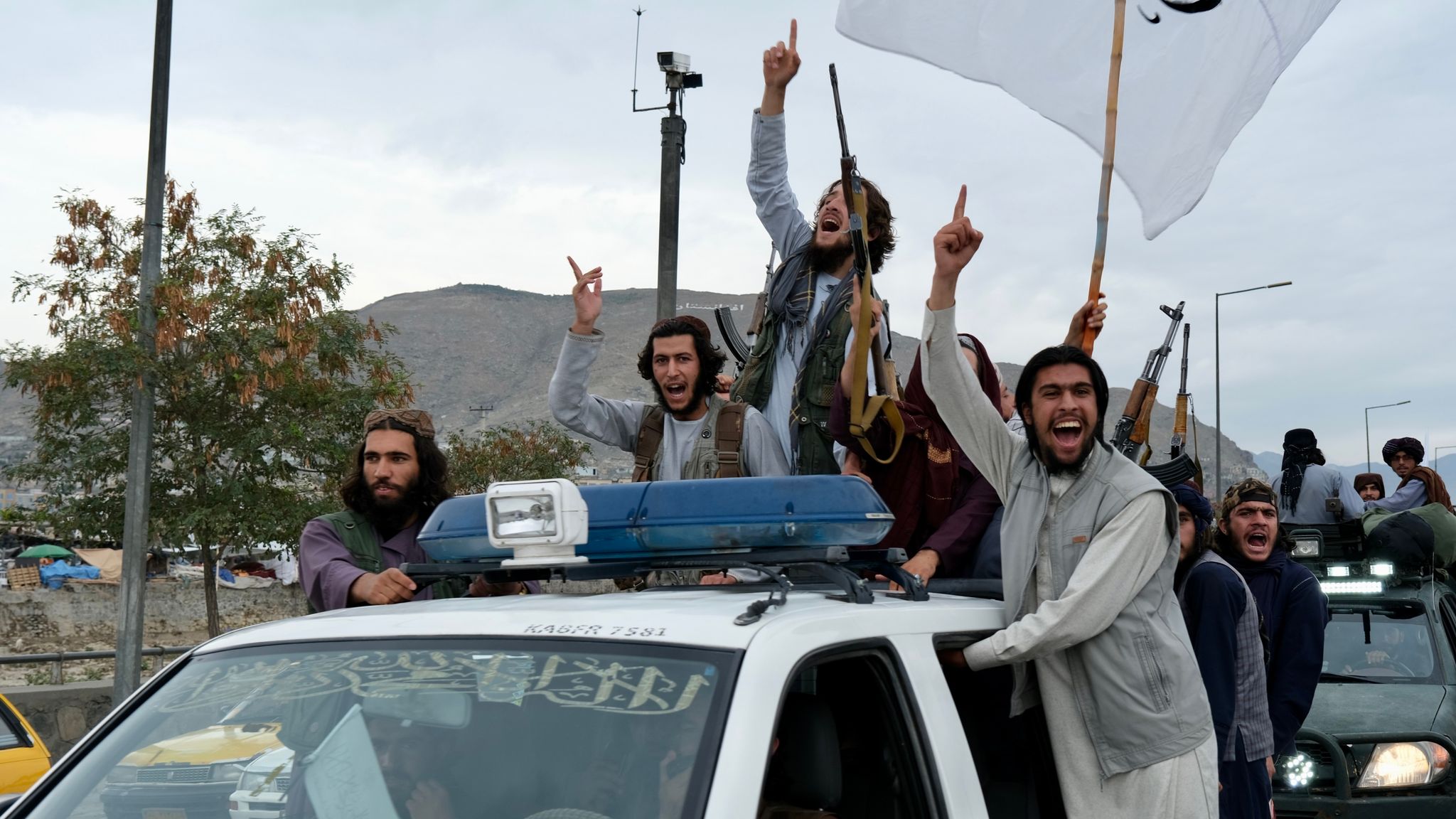
Every country needs a coherent foreign policy. And it’s impossible to overstate the importance of the United States’ military and diplomatic posture.
The U.S. has the world’s second-largest and most sophisticated nuclear arsenal, exclusive comprehensive command over the oceans, perfect strategic geography, has nearly a thousand military bases overseas and is by far the biggest dealer of weapons and ammunition. And it uses them a lot: we have been at war throughout all of our history since independence from Britain.
Backed by this “hard” power, which is used to disrupt and overthrow governments, destroy infrastructure and economies, and generally wreak havoc and mayhem, the U.S. deploys formidable “soft power” via its cultural and linguistic hegemony, which has established English as the world’s lingua franca. It determines whether up-and-coming nations are “permitted” to join the “nuclear club” or whether they can be recognized as sovereign countries. It controls a vast array of intelligence operations (including those purporting to work for other countries) and non-governmental organizations, which pull the strings of foreign-based media outlets. The U.S. even hosts the United Nations.
Our military, economic, cultural and diplomatic power is incalculably formidable—and our reach is infinite.
We have an awesome duty to exercise our massive power responsibly, intelligently, with restraint, and in service of the greater global good; sadly, the opposite has been true more often than not.
When the Left takes over control of the nuclear missile silos, the defense budgets and the embassies circling the globe, everything must change radically.
President Jimmy Carter hinted at what is possible when he promised to prioritize human rights in foreign policy. Though he fell woefully short of his self-professed ideal, propping up brutal dictatorships like the Shah’s torture regime in Iran and arming the far-right anti-Soviet jihadis in Afghanistan, the U.S. did not launch any wars or proxy conflicts during the late 1970s.
First and foremost, the U.S. must adopt a fully defensive military posture. Troops may only be deployed, and then aggressively, in the event of an invasion or armed incursion—or imminent threat thereof, as defined under international law—of U.S. soil.
The U.S. must never enter into any treaty or mutual-defense arrangement under which it might be legally or otherwise obligated to assist or intervene as the result of a conflict to which it is not a party. For example, we should cancel our membership in NATO, a mutual-defense pact whose member states treat an attack on one as an attack on all, Three Musketeers-style. As the lead state that created NATO, we should encourage its dissolution as the type of dangerous interlocking alliances that triggered World War I.
A defense-only defense policy will allow the “defense” budget to shrink to a small fraction of current levels, freeing up trillions of dollars to attend to urgent yet long-neglected domestic needs like fighting poverty and improving our schools. It will eliminate such misbegotten foreign adventurism as the invasions of Afghanistan and Iraq, covert participation in regime-change “color revolutions,” backing coups such as those that transformed Libya and Honduras into failed states, and the current doomed proxy war against Russia in Ukraine as well as our support of Israel’s war against the Palestinians. Countless lives will be saved and improved as a result. We will acquire fewer enemies, thus reducing the possibility of future terrorist attacks. Here at home as well, we will see fewer hate crimes directed as those who seem to somehow be affiliated or related to whatever nation-state or ethnicity we happen to be designating as our enemy at any given time.
A key part of a comprehensive swords-to-plowshares strategy is to close all of our hundreds of military bases around the planet and bring our troops home where they belong. This will bring an end to the perverse practice of stationing soldiers in a place where they are likely to provoke an attack only to then double- and triple-down on our presence in order to protect the previous force. Smarter not to station them there in the first place.
When a foreign crisis or conflict seems to call for military intervention in order to restore law and order, as may be the case currently in Haiti, to stop genocide as we saw in Rwanda in the 1990s, or for some other benevolent reason free of self-interest, U.S. involvement should be reluctant and carefully considered, and then, should be voted upon directly by the people rather than our elected representatives. Then, should we choose to be involved, any such action must be coordinated by the U.N. in conjunction with a coalition of other member states. The U.S. is neither the world’s policeman nor its mob enforcer; it ought not to pretend otherwise.
As the world’s foremost arms developer, dealer and distributor the U.S. is uniquely positioned to initiate and organize a bold new era of arms control and deescalation. A leftist U.S. will unilaterally point the way forward by methodically dismantling its nuclear stockpile, while encouraging others to do the same. Many countries, like China, Russia and North Korea, spend money they don’t have to build nukes for fear of a U.S. first strike; they would welcome a statement from U.S. that we would never fire nuclear weapons first and that they no longer need to try to keep up with us. We should join the international treaty banning the use of landmines. Similarly, we should forswear the manufacture, deployment and use of unmanned drone weapons, and ask the world to join us in a global convention prohibiting assassination drones.
A Left country prioritizes peace. Thus it is absolutely imperative that a Left-governed United States establish and maintain full and, to the fullest extent possible friendly, diplomatic relations with every other country, no matter what. Because we value and respect each nation’s right to self-determination, it is not the place of the State Department to attempt to pressure or influence the political orientation or style of government of any other country. Whether or not we agree with a foreign state’s ideological, economic, religious or cultural attitudes is irrelevant; a leftist diplomatic corps is always willing to talk to anyone about anything and to remain available to assist U.S. nationals traveling or living in other countries. In keeping with this openminded approach, the United States will end any and all economic and other forms of sanctions against all foreign governments, and promise never to deploy them in the future for any reason whatsoever, no matter how seemingly justified. Sanctions are coercive gangsterism. As the socialist government of Cuba plainly proves, they don’t work anyway. And sanctions only affect ordinary people, never the elites.
The U.S. should never wield trade policy as a cudgel, such as imposing tariffs against imports from one producer but not another. While trade policy should always prioritize the protection of American companies and workers, tariffs and regulations should be applied uniformly to all imported goods without favor or disfavor to one or any group of producers.
To the world, we say: we wish to be your friends. And if we cannot be friends, we will at least do everything in our power not to turn ourselves, as we have done so often in the past, into your enemy.
Next time, what the Left should do about law, order, policing and punishment.
(Ted Rall (Twitter: @tedrall), the political cartoonist, columnist and graphic novelist, co-hosts the left-vs-right DMZ America podcast with fellow cartoonist Scott Stantis. You can support Ted’s hard-hitting political cartoons and columns and see his work first by sponsoring his work on Patreon.)




